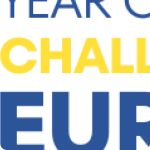Past Events

- William Pitt Union Assembly Room
Take a break from studying and enjoy free drinks and snacks from around the world! Instructors and students from the Less-Commonly-Taught Languages Center (LCTL) and Pitt's many language departments will teach you how to order in Swahili, German, Modern & Ancient Greek, Quechua, Hebrew, Irish, Chinese, Persian, Turkish, Arabic, Ukrainian, English, and many more of the nearly 30 languages offered at Pitt. Then, you can place your order at the Language Coffeehouse and enjoy free drinks and snacks from around the world.

- Kaija E. Schilde
- Zoom
Kaija E. Schilde Jean Monnet Chair of European Security Associate Professor, Pardee School of Global Studies Director, Center for the Study of Europe Project on the Political Economy of Security Pardee School Initiative on Forced Migration and Human Trafficking The EU is a non-unitary security state of international significance and is threat responsive to challenges to its interests. It has become a security state through a combination of incremental institutional layering and shifts in international threat, primarily the 2014 Russian annexation of Crimea and intervention in Eastern Ukraine, and the 2022 Russian invasion of Ukraine. The security studies debate on European strategic autonomy has so far ignored and dismissed the infrastructural power of the EU. The EU’s infrastructural power comes from regulatory, monetary and market instruments, and a nascent but increasing direct procurement of military materiel. EU infrastructural power complicates EU-related state formation theory debates. Traditional security states extract resources from their society, directly tax their populations, and have formal authority to generate military capability. Historically, the EU has done none of these things. Scholars using the conventional lens of state security authority have concluded that the EU is not yet a security state, because it does not tax and spend to generate military capacity on its own (Kelemen & McNamara, 2022). However, this misdiagnoses the sources of infrastructural security power in the 21st century, and only compares the political development of the EU to the generation of military power in earlier centuries. Moreover, this position fails to consider the comparative: how do contemporary non-EU states generate military capacity? To what are we comparing EU state formation? I theorize a broader definition of security state to align with 21st Century generation of military power and evaluates the shifts in EU infrastructural power in light of changes. Prior Title: EU Defense Cooperation and the War in Ukraine

- Giuseppina Mecchia
- Zoom Webinar
In the last few years, we have seen an increasing international awareness of the challenges facing the interaction between human populations and a changing environment. In France and Italy, these issues have in fact occupied a really important role in philosophical, social and political debates and initiatives for at least five decades. Our panelists will offer a diverse and far-reaching presentation of their own involvement with the research and initiatives presently occurring in Italy and France. Moderator: • Giuseppina Mecchia, University of Pittsburgh Panelists: • Yves Citton, Université Paris 8 Vincennes-Saint Denis, France • Daniela Fargione, University of Turin, Italy • Giuseppina Mecchia, University of Pittsburgh Dr. Yves Citton, Professor of Literature and Media at the Université Paris 8 Vincennes-Saint Denis, France, will discuss a new-web-based platform that he has founded with international collaborators, the Terraforma Project, which aims at providing a more-than-human position on current ecological challenges. A report on Terraforma can be downloaded from this calendar. Dr. Daniela Fargione, Associate Professor of American Studies at the University of Turin, Italy and a Fulbright Fellow at the University of Pittsburgh this spring, is currently engaged in a transnational reflection on literary and media interventions on new climate challenges, and she will address the history and current engagements of Italian Green movements. Dr. Mecchia, Associate Professor of French and Italian at Pitt, will talk about the living legacy in France but also internationally ot the insights of two of the most important French philosophers dealing with the presence of humanity on Earth, Bruno Latour and Michel Serres. Their work, since the 1980s, has inspired a multitude of researchers and activists.

- Various
The revolutionary prospect of socialism inspired homosexual emancipation and the growth of toleration toward same-sex relations in the first quarter of the twentieth century in many countries, including the UK, US, Hungary, and USSR. However, the development of LGBTQ+ rights within socialism was never linear and even. The conference seeks to address those discrepancies and the reasoning behind them. It aims to discuss the LGBTQ+ experience and its political, social, and cultural implications under state socialism from a global perspective. What was the place of queerness under socialism? Was socialist ideology generally more responsive to queer people’s agenda and empathic towards them? How did legislation relate to same-sex activity change over time in socialist countries? How did the Cold War and geopolitical tensions between socialist and capitalist counties influence and inform sexual politics toward queer people and their perception? Why did some socialist countries, such as the Czech Republic, Hungary, and the GDR decriminalize homosexuality as early as the 1960s and the Polish People’s Republic never criminalize it? What strategies of networking and concealment did sexual and gender non-conformists adopt in the socialist countries where homosexuality was still illegal, such as Soviet Republics, China, and Cuba? What was the attitude towards gender and sexual dissidents among the left-leaning movements in capitalist countries? Why decriminalization of homosexuality and homosexual emancipation that followed it was subsequently cut off in some post-socialist countries such as Russia? The main goal of the symposium is to reflect on the broad spectrum of topics related to the conjunction of queer and socialist ideology from a global and comparative perspective. The symposium aims at the broader public, including students, scholars, and activists.

- Milada Anna Vachudova
- Zoom
SPEAKER: Milada Anna Vachudova University of North Carolina at Chapel Hill Professor Vachudova will explore how the rise in support for populist parties has shaped party systems in Europe over the last decade, focusing on ethnopopulist parties -- parties that make strong anti-pluralist appeals, vilifying individuals, groups and institutions labeled as culturally harmful. When in power, ethnopopulist parties use these appeals to justify the concentration of power -- and this playbook has helped bring authoritarian rule to Hungary while Poland stands on the brink. She unpacks why ethnopopulism has become a challenge to liberal democracy in Europe, how oppositions have responded -- and why EU member governments have shown such complacency and cynicism in countering it. This has led to the risk of a decoupling of the EU from the regime type of liberal democracy. Yet Russia's war against Ukraine is changing political contestation related to liberal democracy and to relations with Russia in key states including Poland and Germany. Professor Vachudova will close by reflecting on Ukraine's challenge to the European Union -- and whether and how the EU enlargement process can be revived as a tool of EU foreign policy.

- Nicholas R. Micinski
- Zoom
Presenter: Nicholas R. Micinski Assistant Professor of Political Science and International Affairs at the University of Maine Moderator: Paweł Lewicki, Associate Director European Studies Center Migration has become an important area of cooperation within the European Union and has faced several recent refugee crises, including people seeking protection from Iraq, Afghanistan, Syria, and Ukraine. This lecture will discuss the ways in which cooperation within the EU has evolved over the last 20 years, focused on the starkly different responses in 2015-17 and 2022. The lecture will build on the findings in Micinski's book, Delegating Responsibility: International Cooperation on Migration in the European Union (2022).

- Lucinda Morgan and Rachael Ochoa
- 5108 Posvar Hall

- John Markoff and other Pitt faculty members
- Sociology colloquium Room, 2432 Posvar Hall
This in-person, one and a half-hour roundtable includes the following Pitt faculty members and concludes the conference. --John Markoff, Department of Sociology --Diego Holstein, Department of History --Michael Goodhart, Department of Political Science --Mohammed Bamyeh, Department of Sociology This roundtable will be moderated by Randall Halle, Department of German and the European Studies Center.

- Jackie Smith, University of Pittsburgh, and Ben Manski, George Mason University
- Sociology Colloquium Room, 2432 Posvar Hall
In this one and a half hour, in-person panel, Jackie Smith, University of Pittsburgh, will discuss "Globalization and the Future of Democracy Today?" Ben Manski, George Mason University, will discuss "The Other World That Is Necessary: The Imperative of Next System Studies." The discussion will be moderated by Nathan Katz, Department of Sociology, University of Pittsburgh.

- Mark Philp, University of Warwick, UK, is moderator
- Zoom
This one and half hour virtual panel on Histories of Democracy will be moderated by Mark Philp of the University of Warwick, UK The speakers and their topics are: --Eduardo Posada-Carbo, University of Oxford, UK "Simon Bolivar" --Guy Thomson, University of Warwick, UK, "Benito Juarez" --Stephen Sawyer, American University in Paris, France, "Napoleon II and the Third Republic" Joanna Inness, University of Oxford, UK, will be the Commentator. Lunch will be served for those watching the session in the Colloquium Room.

- Amber Reed, Spelman College
- Sociology Colloquium Room, 2432 Posvar Hall

- Harris Theater
Richi (Moisé Curia) is on the road with a little girl (Anna Malfatti) in a camper van through southern Germany. They have a good time with each other, dress up, dance and laugh a lot. He is a seed salesman, she his little doll. An unusual couple, but happy? When the two stop off at a restaurant, the landlord (Heio von Stetten) becomes skeptical. Something is not right here! What's more, the girl speaks a very rare language: Ladin. Meanwhile, in Rome, police inspector Milia Demetz (Cosmina Stratan) is investigating cyberspace and is hot on the heels of a pedophile network. When she discovers a girl in one of the anonymous videos, she is soon certain: the lasciviously photographed child is Magdalena Senoner, who disappeared in Tyrol at the age of five. But who is behind the camera? When the landlord forwards the footage from his surveillance camera to the police, all the threads come together. Can Milia save little Magdalena? Harris Theater (Pittsburgh Cultural Trust) 809 Liberty Avenue Pittsburgh, PA 15206 Get Tickets Here: https://trustarts.org/production/84748 PROMO CODE for discounted tickets: EUPITT (* Pitt Students, Staff and Faculty Only)

- Harris Theater
A story of Celia, an 11-year-old girl who studies at a nuns' school in 1992. Celia is a good girl; she is a responsible student and a considerate daughter. The arrival of a new classmate will open a little window through which Celia will discover a whole new world. Together with her new friend and some older girls, Celia will enter a new stage of her life: adolescence, the stage of first-times. Her body needs to experiment, try new things, and stop being a little girl, even if that entails confronting her mother and everything that meant comfort and security. COUNTRY: Spain (2020) DIRECTOR: Pilar Palomero Harris Theater (Pittsburgh Cultural Trust) 809 Liberty Avenue Pittsburgh, PA 15206 Get Tickets Here: https://trustarts.org/production/84780 PROMO CODE for discounted tickets: EUPITT (* Pitt Students, Staff and Faculty Only)

- Jessica Greenberg, University of Illinois
- Sociology colloquium Room, 2432 Posvar Hall
This one-hour, in-person lecture is part of the conference on Democracy in Europe, Democracy Beyond Europe. The speaker is Jessica Greenberg, University of Illinois, Urbana-Champaign. Her talk will be moderated by Nancy Condee, Director of Russian East European & Eurasian Studies, University of Pittsburgh.

- Hillary Lazar and Benjamin Case, both from the University of Pittsburgh
- Sociology Colloquium Room, 2432 Posvar Hall
During this one and a half hour, in-person panel, Hillary Lazar will speak on "Democracy and the Anarchist Turn into 21st Century Activism" and Benjamin Case will speak on" Ballot Initiatives as a Window into Democracy in Crisis." The panel discussion will be moderated by Mark Paterson, Department of Sociology, University of Pittsburgh.
- ‹ previous
- 28 of 51
- next ›
